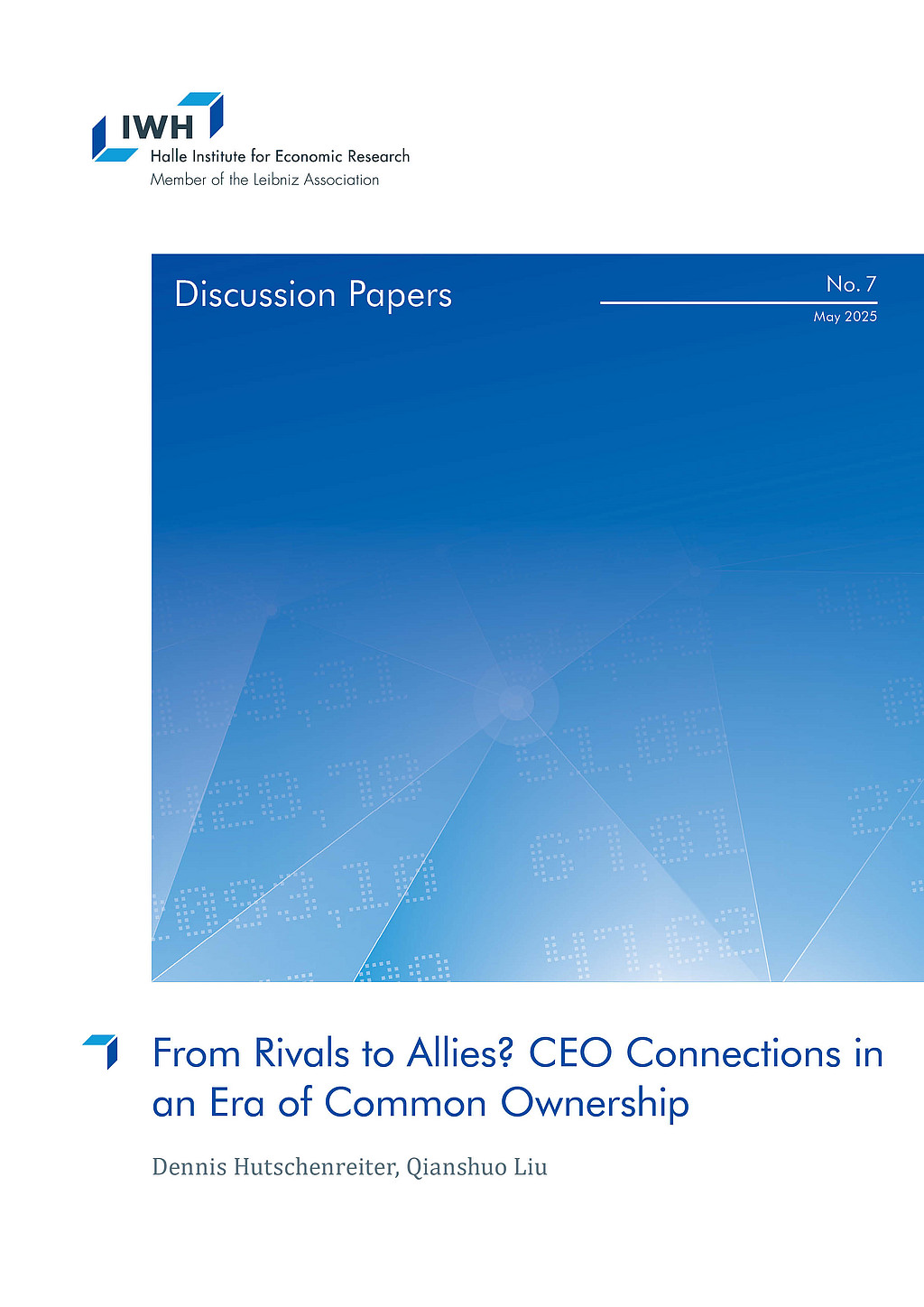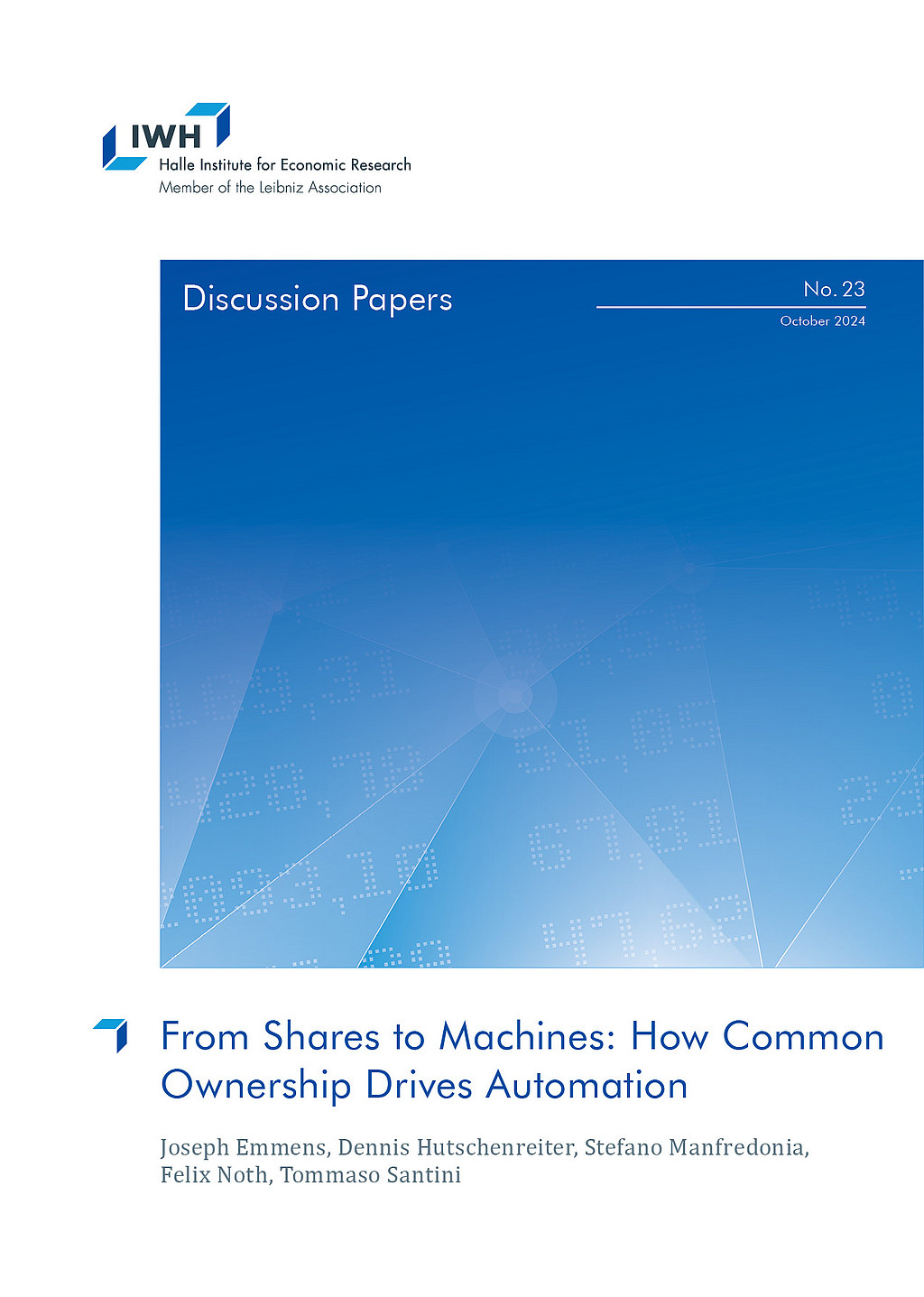Dennis Hutschenreiter, Ph.D.

Aktuelle Position
seit 6/22
Wissenschaftlicher Mitarbeiter der Abteilung Finanzmärkte
Leibniz-Institut für Wirtschaftsforschung Halle (IWH)
Forschungsschwerpunkte
- Finanzmärkte und Realwirtschaft
- Technologie- und Innovationspolitik
- Unternehmensführung
Dennis Hutschenreiter ist seit Juni 2022 wissenschaftlicher Mitarbeiter in der Abteilung Finanzmärkte. Er beschäftigt sich mit den Zusammenhängen von Finanzmärkten und der Realwirtschaft. Insbesondere untersucht er den Einfluss institutioneller Investoren auf Innovationsprozesse, Technologiemärkte und das strategische Verhalten von Unternehmen.
Dennis Hutschenreiter hat an der Universität zu Köln studiert und an der Autonomen Universität Barcelona und der Barcelona School of Economics promoviert.






